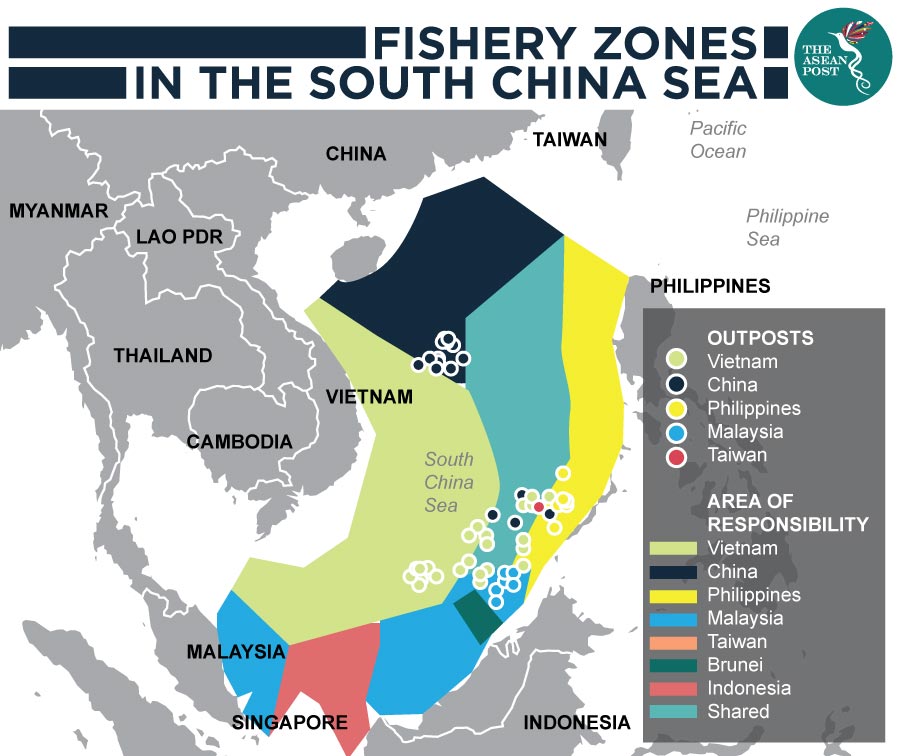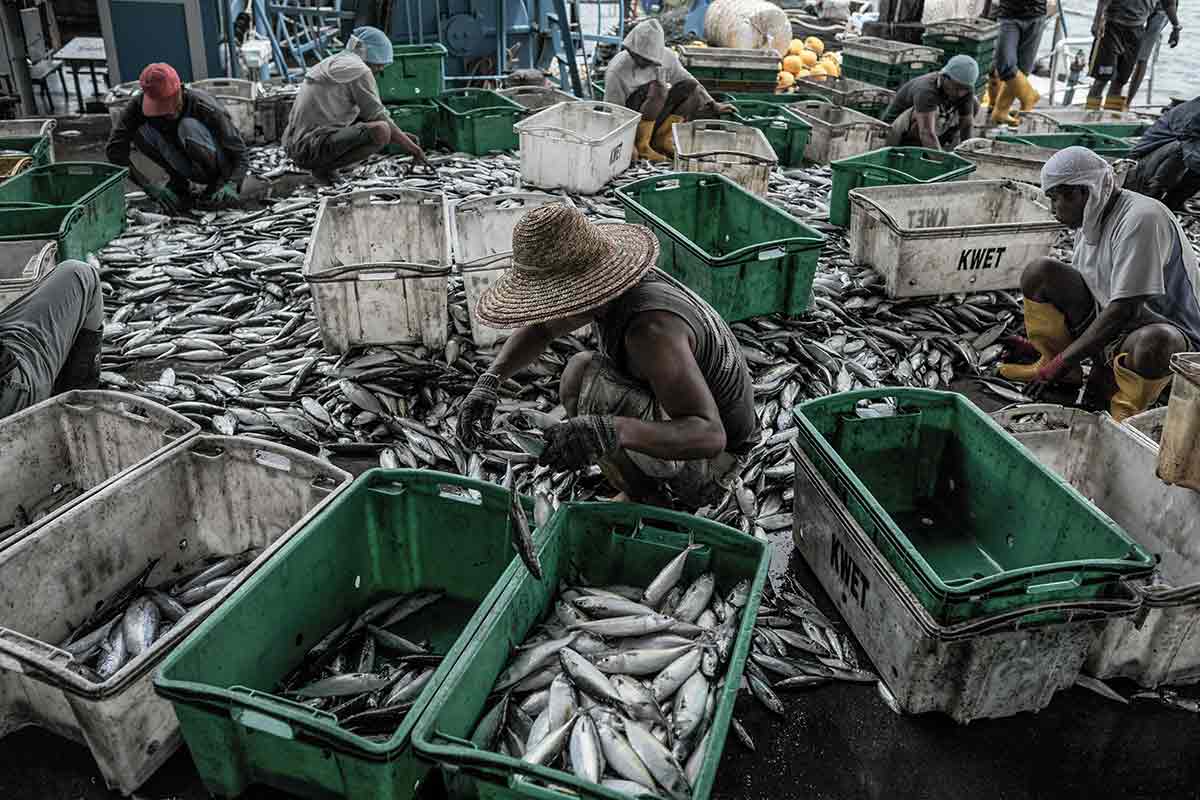The issue of overfishing is the greatest threat to ocean ecosystems today. Overfishing occurs when fish are netted at a more rapid rate than they can reproduce. Some reasons that have led to overfishing are advanced fishing technologies, increased demand for fish and illegal fishing. Overfishing can have detrimental and long-lasting impacts on the ocean as well as society.
A report by the World Wildlife Fund (WWF) states that “once considered inexhaustible, our oceans are now facing a global crisis as more and more people compete for fewer and fewer fish.”
It is estimated that 53 percent of the world’s marine fishery resources have been completely depleted or fished to the maximum sustainable level, while 32 percent is currently being overfished, depleted, or recovering from depletion. The Food and Agriculture Organization (FAO) and the World Bank have also warned that the current rate of exploitation will result in increased pressure on seafood in the future.
Overfishing in Southeast Asia
In the Southeast Asian region, overfishing is definitely coming at a price too. Prior to this, the occurrence of overfishing only led to environmental setbacks. However, deeper dives into this issue have also shown that there is a major economic impact on those who depend on fishing to maintain their livelihoods.

The main fishing hotspots in the region include countries embroiled in the South China Sea dispute. The South China Sea is one of the world’s top five most productive fishing zones, accounting for about 12 percent of global fish caught in 2015 alone.
More than half of the fishing vessels in the world operate in these waters, which employ 3.7 million people, and likely many more engaged in illegal, unregulated, and unreported fishing.
However, this critical marine ecosystem is being “seriously threatened by overfishing encouraged by government subsidies, harmful fishing practices, and, in recent years, large-scale clam harvesting and dredging for island construction,” according to the US Center for Strategic and International Studies’ (CSIS) newly-launched working group on the South China Sea.
Causes and effects
One main reason that overfishing occurs in this region is due to illegal, unreported and unregulated (IUU) fishing. While it’s a region-wide phenomenon, it has been particularly highlighted in two areas. The first is the Gulf of Thailand, where the overall catch per unit effort has plummeted by 86 percent since 1966, making those waters among the most overfished on the planet. The second is Indonesia, which is estimated to lose nearly US$4 billion a year to illegal fishing. The most frequent violators are from China, Thailand and Vietnam.
Annually it costs the region billions of dollars, “accounting for more than 2.5 million tonnes of fish a year, or as much as a third of the regional catch”, according to a report by the Australian Strategic Policy Institute.
With the depletion of fish and seafood populations are due to overfishing, the socio-economic effects are obvious. According to the ‘Overfishing Around the World’ report by Cornell University, “overfishing costs over 100,000 jobs and up to US$3.2 billion each year globally.”
In Southeast Asia, over 30 million people who are involved in the fishing industry will face a threat to their livelihoods as jobs will be limited and eventually lost if the issue of overfishing is not addressed.
This will not only affect the fishing community but will also have a knock-on effect to the rest of the community especially in areas where fishing is a main source of income for the population. The importance of the industry to local and national economies cannot be understated.
What can ASEAN do?
Because of the importance of fishing in the region, both economically and as a vital source of sustenance, overfishing in the South China Sea should not be viewed as some minor ancillary problem of the principle dispute over sovereignty. Instead it should be seen and regarded as a major problem that needs to be rectified as soon as possible.
Citing the United Nations Convention on the Law of the Sea (UNCLOS), experts recommend that countries of the Southeast Asian region – namely Malaysia, Vietnam, Philippines, Brunei and Indonesia – should work with other claimant nations on management of fish stocks without compromising claims over the sea.
Since all communities around the South China Sea are highly dependent on fish stocks for food security and income, the CSIS working group states that “there is a definite legal obligation to cooperate on fisheries management and the environment based on practical necessity.”
Meanwhile, the Asian Foundation has recommended that ASEAN implements an inclusive and synchronized legal frameworks to regulate fisheries policies across the region. Maritime jurisdiction can be tricky as boundaries may overlap but this is exactly the reason why national plans of action against IUU fishing needs to be harmonised throughout the region.
Related articles:
Fishy business in the South China Sea
Is joint exploration the answer to the South China Sea dispute?
